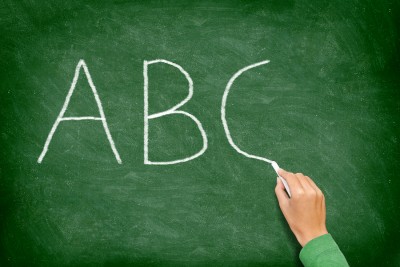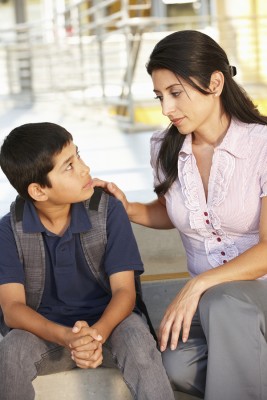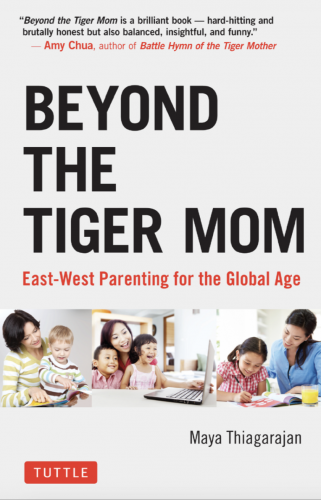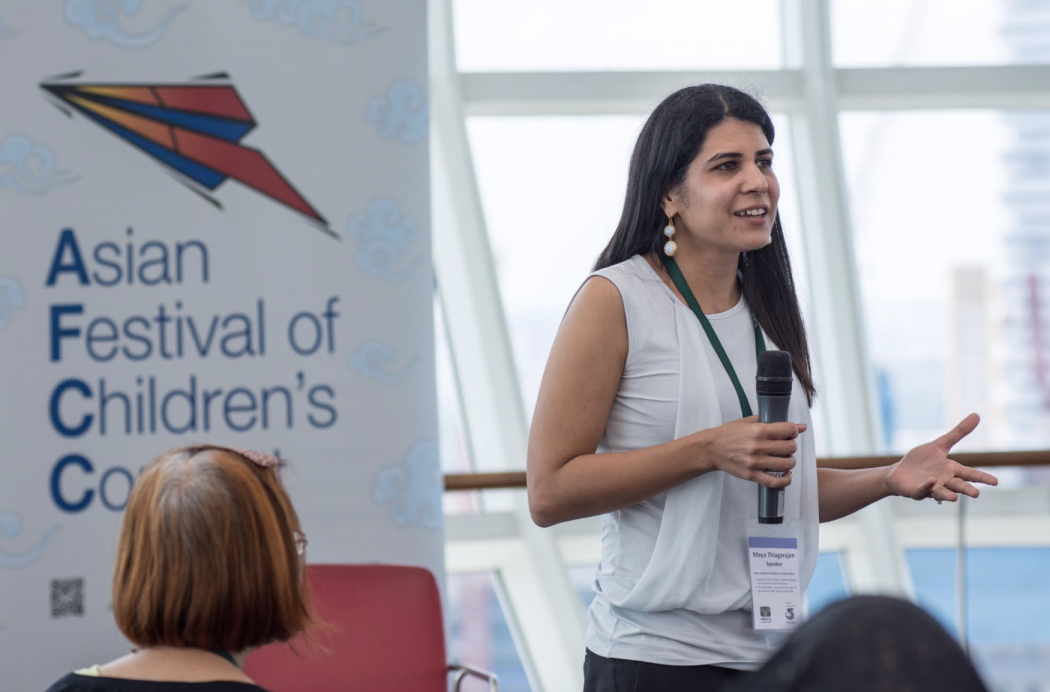By Maya Thiagarajan
Last week, my son came home from school looking dejected and defeated. He had got a lower grade on his math test than he had expected. I knew he had worked hard for the test; I thought that he understood the concepts; and yet, here was a low test score.

As I reached for the paper and looked at it, I could feel an emotional reaction welling up inside of me. To begin with, I felt anger – how on earth could he make so many careless mistakes? And then I felt worried; how would this affect his confidence? What would this mean for future tests? Did he really understand these concepts as well as he thought he did?
I looked at his face, as he watched me for my reaction. “I’m sorry, Ma. I tried my best,” he said, looking tense and worried.
As a parent, it’s easy for us to react emotionally to our child’s stumbles and failures. Our own sense of ourselves is so deeply entangled with our children.
Their successes become our successes, their failures our failures, their pain makes us ache. It’s a powerful relationship, and it elicits powerful emotions.
When I first started teaching, way before I had kids of my own, I used to think parents were nuts. Why did they all think that their kids were geniuses? Why did they get so anxious and worked up about everything?
But then I had my own kids. And guess what? I could feel myself becoming one of those crazy parents.
So here’s how I deal with this situation. When I feel myself reacting hyper-emotionally to my own kids’ successes and failures (particularly their failures), I try to step back and put on my teacher hat. What would I say to my son if he were my student?
Here are three great things that teachers do, and parents can too…
Three Crucial Things that Teachers Know:
#1: Think like a teacher and see failure as a “teaching moment”
As a teacher, I’m very aware of all the ways in which learning can happen, and I think that it’s important to recognize and capitalize on “teaching moments.” 
When my students stumble and fail, I don’t get all worked up about it. Instead, I sit down with them, calm them down by helping them put things in perspective, and then discuss what they can learn from the experience.
Every stumble, every failure, every mistake is a teaching moment. They’ve got something to learn from this, I’ve got something to teach. At the end of our conversation, hopefully, they’ve realized that they can do better next time by taking a few concrete steps. Hopefully, they’ve gained some resilience. And hopefully, they’ve gained some perspective.
#2 Think like a teacher and focus on learning and growth, not achievement:
As a teacher, I don’t take my students’ successes or failures personally. But I do care tremendously about whether or not they’re learning and growing over the course of the year that they’re with me. I know that each kid is on his own individual developmental trajectory. They all have their own starting points, and just like kids grow differently in a physical sense, so too does their growth differ cognitively.
So with my students, I’m looking for learning all the time, and I’m very aware that growth and development are not just straight upward lines – they’re uneven and wavy lines, but they should generally be moving in an upward trajectory. If a kid stumbles, that’s fine. That’s par for the course. He’ll get there eventually. We’ve just got to stay calm and help him focus on learning and growth.
#3: Think like a teacher, and be realistic and accepting of your child’s abilities: 
As a teacher who has worked with thousands of kids over my career, I know that very, very, very few kids are actually geniuses. So hoping that your child is a genius and harboring some kind of distorted view of their abilities is not just delusional, it’s also damaging to the child (that’s a lot of pressure to live up to) and to the parent (you’re inevitably going to be upset when the rest of the world doesn’t agree with your views on your child).
As a teacher, I’m not particularly concerned about a child’s level of innate intellectual ability – I teach a lot of kids who grasp concepts easily and a lot of kids who struggle with skills and concepts. That’s fine. That’s life. When a child comes into my classroom, I’m not judging their natural abilities. Instead, I’m meeting them where they are in their learning journey and helping them grow. What matters most to me is a child’s attitude and work ethic. Teach kids to work hard and try their best, and then focus on their learning and growth. That’s what really matters.
Respond like a teacher!
So, what did I do with my son and his math test? 
I took a deep breath and assumed my teacher persona. I reminded myself that he’s just a kid on his own developmental trajectory. I reminded myself that he’s not a math genius and that’s perfectly okay, but with more practice and hard work, he can do better. I reminded myself to focus on learning and growth, and to view this situation as a teaching moment.
We sat down together and calmly worked through those mistakes. We reviewed some fundamental concepts. We had a conversation about strategies he could use next time to avoid careless errors. We talked about resilience and perspective – this is just one test; he’ll have plenty more. The important thing is to learn from mistakes and move forward. He promised me that he would practice even harder for his next test, and we came up with a rigorous practice schedule.
Then he gave me a hug and went out to play football with his friends.
Maya Thiagarajan is the author of “Beyond the Tiger Mom: East-West Parenting for the Global Age,” a book about how global parents can draw from both Eastern and Western approaches to parenting and education. She teaches high school English in Singapore.

About Maya:
As a mother and a teacher who has lived and worked in both the United States and Asia, Maya Thiagarajan is well-acquainted with the differences between Western and Asian approaches to parenting and education. In this book she not only interviews Asian parents about their values, hopes, and fears, but also synthesizes an extensive body of educational research. The result is a combination of reflection, story-telling, and practical advice for parents as they strive to raise successful global citizens. Each chapter ends with a “How To” section, offering parents research-backed suggestions to aid their children’s development both inside and outside the classroom.
Readers can connect with Maya on Facebook, Twitter, and Goodreads.
To learn more, go visit www.mayathiagarajan.info.



There are no comments
Add yours